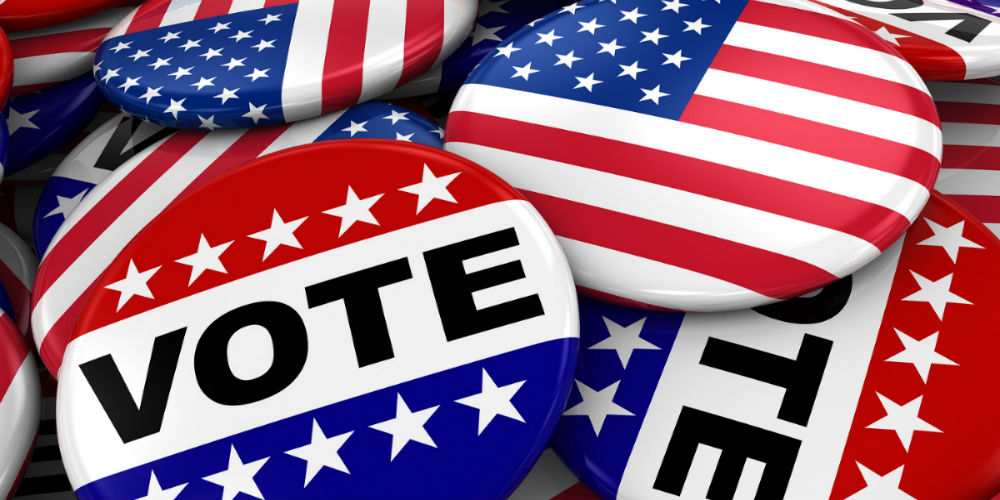Here we are again, another presidential election cycle.
What will this POTUS selection process mean for the global, national, and local economies? How will politics impact our industry (banking and consumer financial service)? Along which lines will ideologues assemble to ‘battle back’ the ‘other’ side? What tax will this election cycle exact on our economic and social stability?
Will local and democratic access to affordable free-market financial services flourish beyond this election? Will credit unions survive polemics and politicking of Election 2020?
Maybe; but chances are improved if we as leaders and custodians of community financial services understand the terms and stakes of this upcoming election.
If there was any doubt this year’s grand political show would feature ‘socialism’ vs ‘capitalism’ in the center ring of our political big top, the recent State of the Union (SOTU) confirmed the likelihood of this impending historic bout at the election box.
Bernie seems to be pulling away from the pack in the Democratic primaries.
Given the results of every election stretching back to 2000, it seems reasonable to anticipate another deeply entrenched divide across our Union this November – 51% in favor of many people’s favorite color from our ‘vibrant’ two-color spectrum, 49% to everyone else’s preferred political hue.
As I’ve suggested elsewhere, the stakes are high for our Union this time around.
Risks are also considerable for commerce and corporations – especially community financial institutions.
As the leaders of institutions which fuel the economic engines of local businesses and community commerce, we would do well to consider the probable fallout of an election cycle polemically and perilously electrified by rhetoric regarding topics like redistribution of wealth, wealthy Americans vs. working poor, the 1% vs. the 99%, billionaires vs. beleaguered blue collar communities, private management of utilities vs. state controlled services for all.
Campaign speeches incessantly stumping on either side of all the above topics (and more) will almost certainly leave us with the following societal hangover symptoms:
- Nearly half the nation (or more) dissatisfied with ‘greedy bankers’ and ‘corrupt corporations.’
- The other half siding with policies and politicians favoring mega-banks and multi-national corporations as engines of innovation and US economic supremacy and stability.
- Many Americans contemplating a politicized dilemma of their financial future and flourishing juxtaposed to depressing levels of national debt or troublesome levels of taxation.
- An increased collective awareness of potential banking practices like negative interest rates, as a means of spurring furious consumerism and discouraging savings/accrual of capital.
- A potential fervor for increased governmental regulation (or even takeover/control) of critical sectors of our economy (banking, utilities, healthcare, etc.).
- Intrigue around the potential revitalization of rural and remote local communities (many served by credit unions) via spotlighting issues like increasing access to high-speed internet and other modern digital economy infrastructures.
At some point in 2020, credit unions across America are likely to find themselves at the epicenters of communities riddled with and rattled by discord, discontent, and feelings of economic disparity, resentment and being disconnected from the technocratic and economic elite epicenters of America.
As an industry, we’ve already squandered immense opportunity from a similar moment in history – the Occupy Wall Street movement and corresponding mainstream mania moment in 2008-2009.
We can’t fail to anticipate the tidal surge of social energy swelling towards the tail end of this current election cycle. We need to be prepared to deliver value of membership to a divided and energized consumer base. The successful community financial institution in the post 2020 landscape will be the one positioned to strengthen local communities by tapping into the inherent pro-socialist qualities of our institutions emphasizing independent, locally owned/controlled, well-capitalized epicenters of community commerce.
One thing sure to deserve escalated consideration and conversation will be whether our industry can preserve the term “Union” as part of our identity and title; or whether that term itself is likely to be dangerously divisive and polarized on the other side of November 2020 by nearly half the nation.
Likewise, every leader in our industry would do well to anticipate problems clinging to the word “credit” as part of our value proposition or personality; especially given the already apparent leanings of much of a Millennial generation (the ascendant economic bloc in our nation) interested in governmental forgiveness of debt while diverting from borrowing and spending habits of prior generations.
In two words, I would encourage our clients and community financial institutions across our nation to develop identities and strategies focused on Cooperative Capitalism.
Communities and consumers across our nation will awake on Nov 4th 2020 (the day after Election Day), battered and beaten by polemical politicking; nearly half depressed about the future of their communal and personal lives. They’ll either encounter the same old rhetoric and problematic language from corporations, including credit unions and our tired language and identities, or they’ll be relieved to find local allies invested in collaborative flourishing for all in local economies and committed to sustainable capitalization and local commercial cooperation.
At DaLand we believe the latter of the above options is the preferred and more meaningful possibility to pursue, which is why we’re tirelessly working on practical ways for your institution to use its data and communal presence to develop sustainable, relevant, and community enriching experiences for consumers and communities alike.
We look forward to partnering with bold and purposeful institutions interested in building a less dystopian Community Ecosphere of Cooperative Capitalism!







